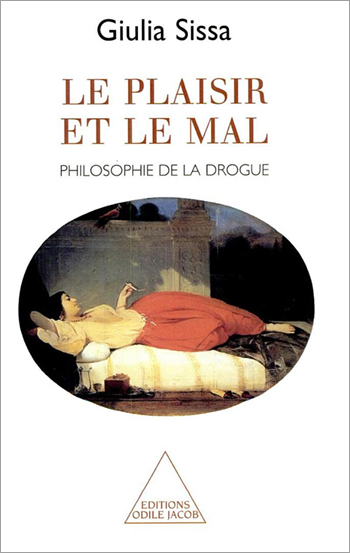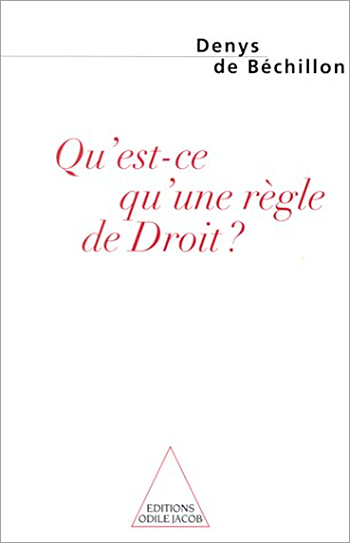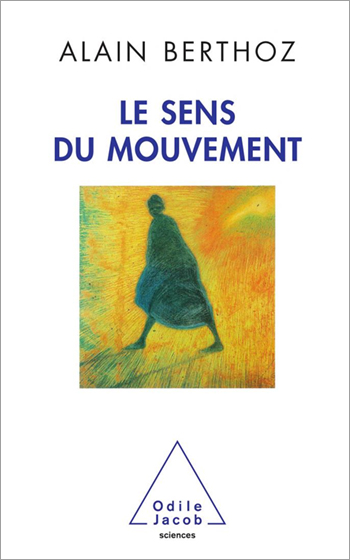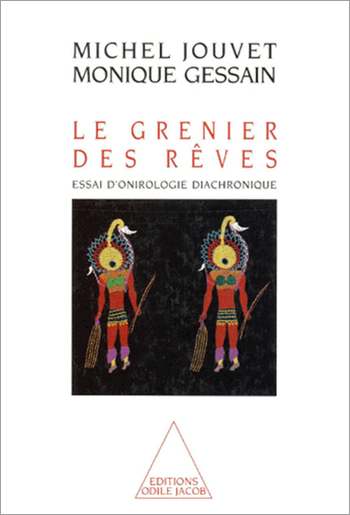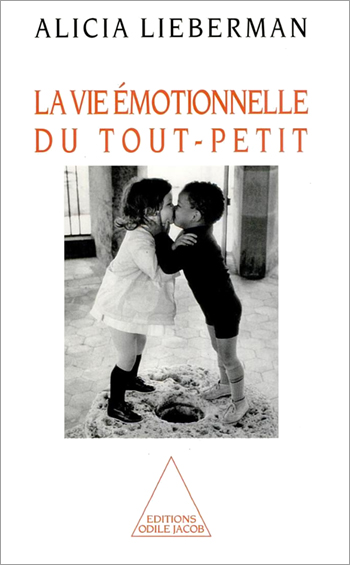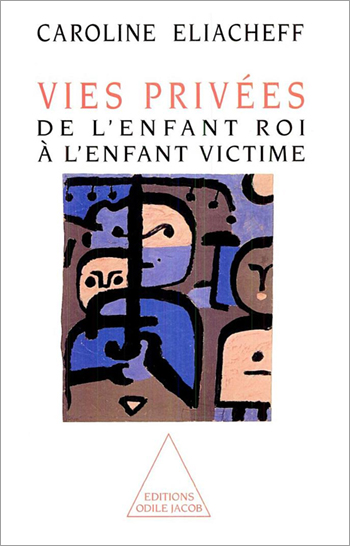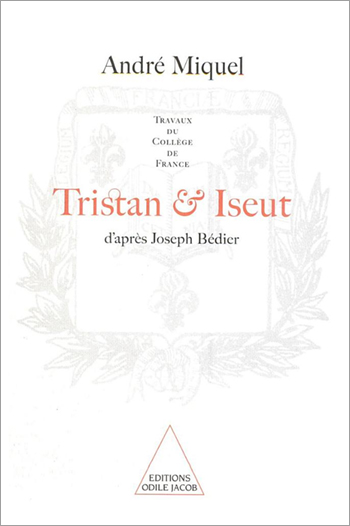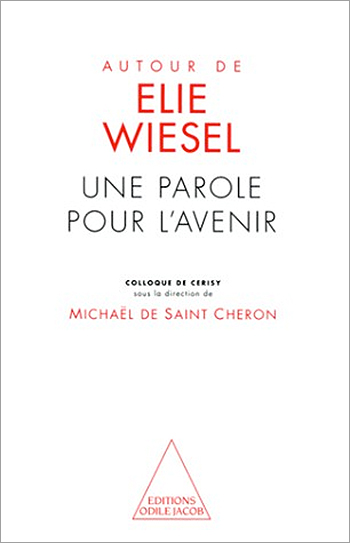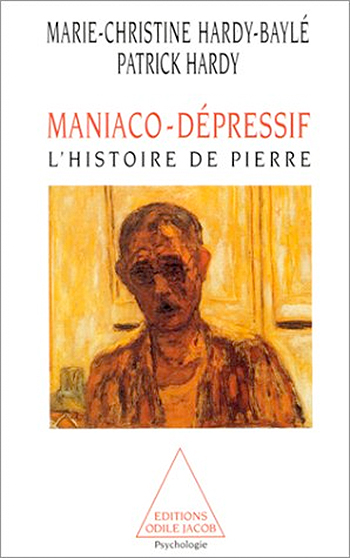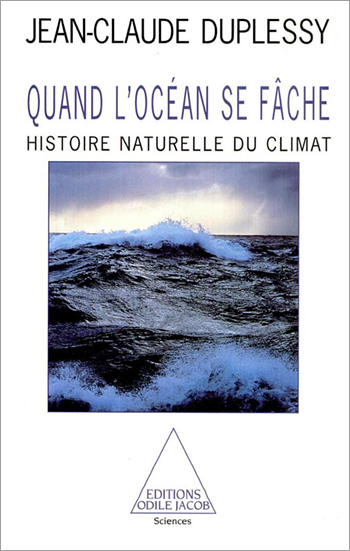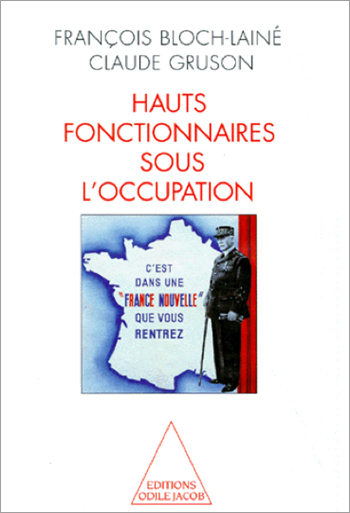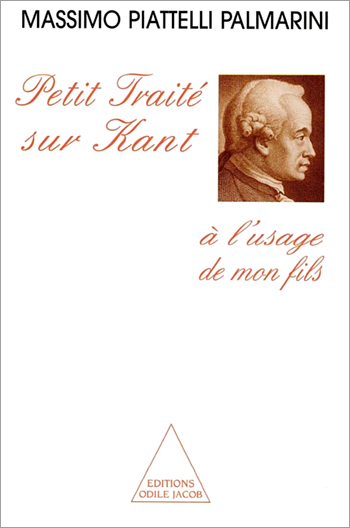Catalog All books
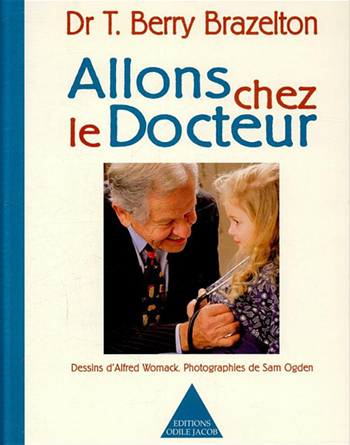
T. Berry Brazelton
Going to the Doctor
Written by one of the greatest American pediatriciens this book clearly explains to children the key moments of their medical visit. Through the choice of clear and interesting photographs, it awakens the natural curiosity of children, which is also raised by the often quite comical illustrations drawn by the author's nine year-old grandson. With this book, the former occasions of children's torments and parents' agony are transformed into a time of discovery and shared complicity. T. Berry Brazelton is an emerite professor at Harvard Medical School and has been a pediatricien for over forty years.
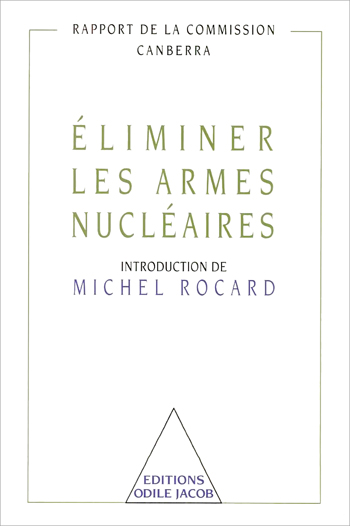
Commission Canberra
Eliminating Nuclear Arms
"Legally, politically and strategically nuclear arms have been reduced to a tiny number of marginal hypotheses and will soon be mere anachronisms. They have lost their justification, their reason for being. But they continue to represent a danger for humanity : they could be used by accident or by mistake due to the mistaken interpretation of another country's attitude. We must therefore do everything in opur power to eliminate them once and for all." Michel Rocard
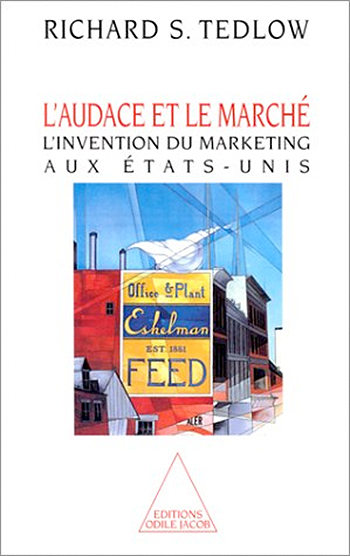
Richard S. Tedlow
Audacity and the Market The Invention of Marketing in the United States
What great commercial battles in the United States are at the origin of marketing ? What strategic choices, technologies and infrastuctures have made possible one of the great social and economic upheavals of the 20th century ? This book recounts the combats waged without mercy between Coca-Cola and Pepsi-Cola, and Ford and General Motors, and also the story of the pioneer manufacturers and distributors who created marketing, invented standardised products, international brands, the segmentation of markets, chains of shops and supermarkets... Richard Tedlow is a professor at Harvard Business School and has long been Editor-in-Chief of the famous Business History Review.
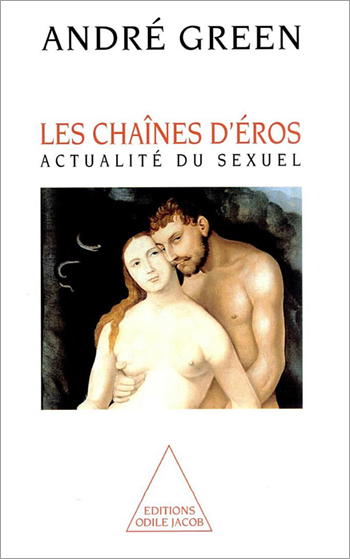
André Green
The Chain of Eros
Sexuality is no longer what it was when Freud elaborated his theory of its psychic functioning. His successors have either given it less importance or a completely different status. André Green has undertaken in this book a real re-founding. Sexuality, seen from a psychoanalistic point of view, is what he calls "an erotic chain", organized according to different steps (impulse, desire, fantasies, erotic language, etc.). For him, the importance it is not so much to consider each of these steps separately but to specify at which link of the chain the analyst himself stands. André Green, is a psychoanalyst and a psychiatrist.
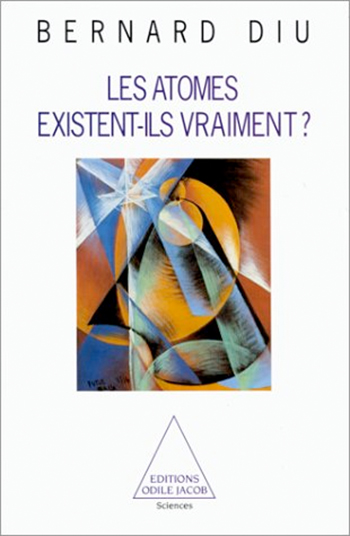
Bernard Diu
Do atoms really exist ?
Few scientific notions have aroused the speculative imagination like the thermodynamic entropy. All organised systems - societies, living creatures - are destined without exception to decline and eventual death. This book clearly exposes the historical and conceptual development of thermodynamics. Born from a desire to understand and master steam powered machines - the symbol of our industrialised societies - it became the science of the human body. However, it was suddenly passed over in favour of the theory of atoms. It was thus demolished by statistical mechanics which ceded to the imperatives dictated by the atomical structure of the body. After an epic struggle, sometimes quite ferocious, thermodynamics and statistical mechanics have been reconciled by adopting the base of the second with the techniques of the first. This book reads like a novel about contemporary physics. Bernard Diu, a graduate of the Ecole Normale Supérieur, is a professor at the University of Paris VII.
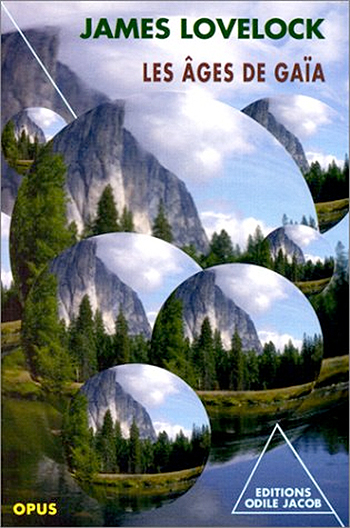
James Lovelock
The Ages of Gaia A Biography of Our Living Earth
The fascinating, controversial and most-worshipped hypothesis of ecologists - that of considering the Earth as the biggest living organism, referred to as Gaïa. It is here discussed by its inventor in person, who shows us that if our planet hasn't always had the same face, it's because there have been several ages corresponding to the predominance of very different species. In three centuries, humanity has wrought more modifications to the face of Gaïa than natural evolution did in millions of years. Although he does not doubt that the Earth, today turned completely upside-down by industrial activities, will find a new equilibrium, he does suppose that it could at the price of the disappearance of man, whose reign represents only one of the ages of Gaïa. Born in 1919, James Lovelock is the author of The Gaïa Hypothesis, a book which shook up the scientific world in the beginning of the seventies and met with great public acclaim.
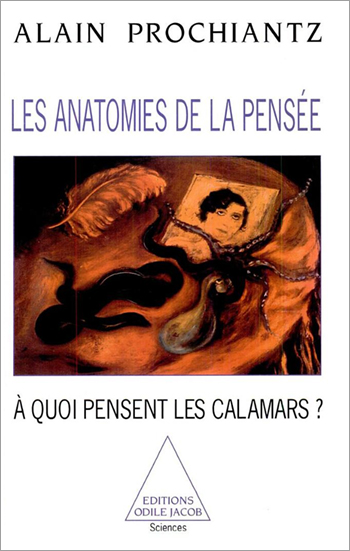
Alain Prochiantz
The Anatomies of Thought What do squid think about ?
When we watch a squid facing up to a predator, we see it recoil, agitate the tentacles, spray a jet of ink, and then make use of the temporary blindness of the predator in order to escape to a safe hiding place. Are we able to say what it is thinking ? Evidently, we know that this behaviour is not the result of a reflex unleashed by the sight of an enemy. The mollusc is not however conscious of its acts, at least not in the sense that we, as human beings, understand this term. It is true that we are the product of a evolution of species, and that, although this may not be welcome news for everyone, we share a common ancestry with the octopus, or even the fly. Even if the structure of our cortex, and the invention of language allows us to write about octopuses (or flies), and not the other way round, the fact remains that these evolutive roots, in the same way as other animal species, including invertebrates, have something to teach us about the nature of our thoughts. Alain Prochiantz
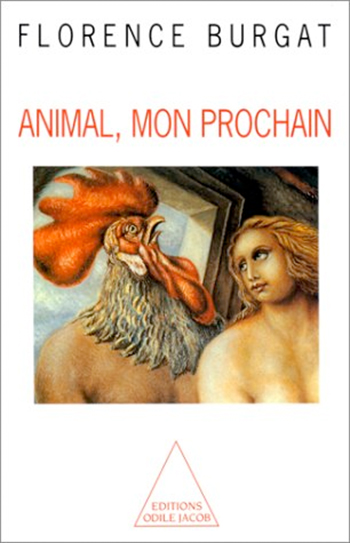
Florence Burgat
The Animal, My Relation
On one hand, men exploit, manipulate and slaughter animals. On the other hand, they let animals interfere with their lives, pollute them, and sometimes dominate them. Since the classical Age, Man has sought to define himself in his opposition to animals. Claiming for himself the most noble faculties - consciousness, thought, esthetic sense, morality - he represses his own animal side, notably his sexuality. But Florence Burgat goes beyond this negative statement. She walks in Jean-Jacques Rousseau's steps, claiming that men, like animals are sensitive beings, liable to suffer. On this basis, she proposes a new morality. Florence Burgat is a philosopher, and works at the Laboratory of Social Anthropology of the College of France.
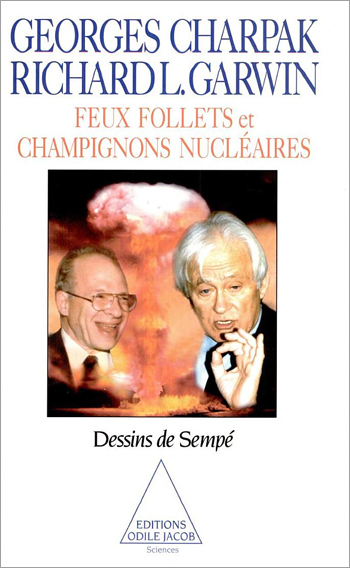
Georges Charpak, Richard L. Garwin
Power People and Nuclear Mushrooms
How can we control nuclear power ? This question has been preoccupying Georges Charpak and Richard Garwin for a long time. They here engage themselves in a thought-process concerning the stakes of nuclear power in civil society and the military. It is high time to see the issue clearly, and steering clear of sterile polemics, to denounce the true risks. This book describes in detail everything we need to know about the question : what is a chain reaction ? What exactly happened at Chernobyl ? What should be done with radioactive waste ? How are nuclear arms made and what would future war confrontations be like ? etc... Georges Charpak is a Nobel Prize winner in physics. Richard Garwin is a nuclear physicist.

Stanislas Dehaene
A Good Head for Maths
Did you know that babies can count? And did you know that some animals can do simple arithmetic? Whether we possess astounding mathematical talents or the most basic of counting skills, we are all born with numerical intuition. In this book, the author describes some amazing scientific experiments that demonstrate the mental foundations of numerical intuition. If you want to know why you cant remember how much 7 x 8 makes, or how a cerebral lesion can make you forget 3 - 1, or if you want to figure out the fifth root of 759,375, just follow the author in a series of tortuous mental calculations and you dont even have to be a mathematical wizard. Stanislas Dehaene is a senior research fellow at Inserm and works at the Laboratory of cognitive sciences and of psycholinguistics at the École des Hautes Études en Sciences Sociales.
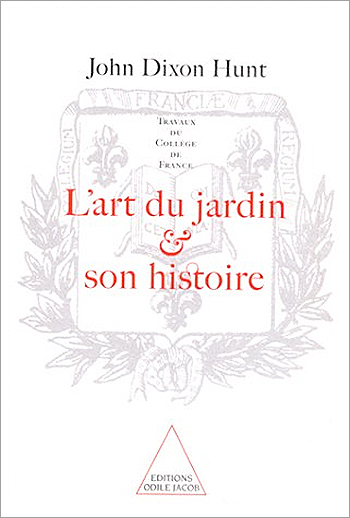
John Dixon Hunt
The Art of the Garden and its History (Product of the Collège de France)
What can a garden reveal about ourselves and our culture ?
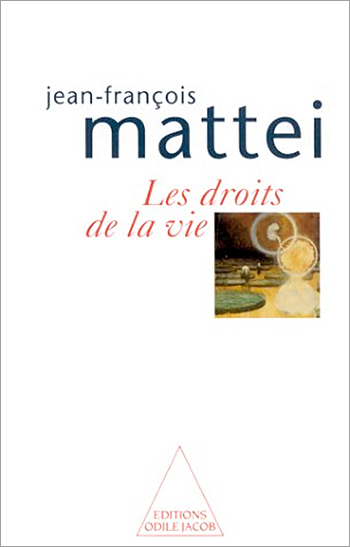
Jean-François Mattei
The Rights of Life
Medically assisted procreation, prenatal diagnostic, organ transplants, genetic testing : all are part of the spectacular progress characteristic of scientific and medical research in the last few years. These new techniques confront us with totally new situations and oblige us to take responsabilities and make difficult choices. Should we do these things just because we can ? Who should decide what to do and on what criteria ? The individual or society ? Doctors or politicians ? This book invites us into a stimulating and incisive thought process concerning the future of medicine.

Michael S. Gazzaniga
The Social Brain
This book investigates the concepts of the "right brain" and the "left brain". According to the author the brain is most certainly made up of relatively autonomous modules which react independantly to environmental pressures. At least one of the modules, situated on the left side of the brain, is responsible for the interpretation of answers which may be contradictory with others, whereas yet another module on the same side translates into words the result of this interpretation. So, instead of being a unique, monolithic system that we imagined, the brain would appear to be a collectivity of systems - a social brain. This approach enlightens us as to the functioning of the human brain, and according to Gazzaniga, affects the very roots of our belief systems and societies. Renowned American neurologist, Michael Gazzaniga is Director of the Cognitive Neuroscience Division of Cornell University and chairman of Neuropsychology.
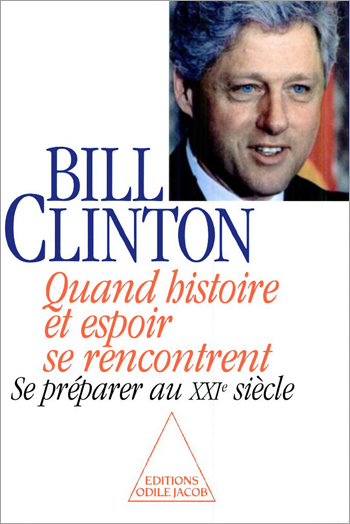
Bill Clinton
Between Hope and History Meeting America's Challenges for the 21st Century
For many people, America remains a model. A model of an economy in full growth, a model of a society which has created millions of jobs, a model of a nation reuniting men and women from the most diverse origins. Today, like before, America demonstrates her amazing capacity to adapt and to bounce right back. For the first time in print, the President of the United States expounds his personal vision of the American dream, a dream which he intends, from this moment forward, to transform into reality. A political document, but also offering many subjects, from education to budgetary concerns, for general reflection.
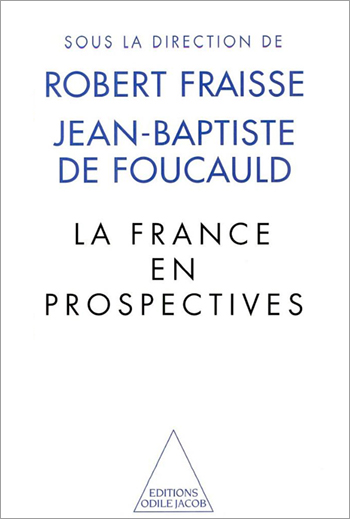
Jean-Baptiste de Foucauld, Robert Fraisse
The France of the Future
What will France be like in twenty years ? Faced with the fear of the future, with the current unease and confusion of French citizens, we need to change the way we look at things. We must stop asking ourselves about individualism in our society and look for answers to the mounting solitude. Stop theorizing about immigration problems and find the keys to demographic evolution. Stop fearing the invasion of the immaterial and start looking for the the new social fabric of tomorrow. We must suggest some possible plans of action and thought processes, provide some sketches of tomorrow's France, among the risks and hopes, to get some new perspectives.
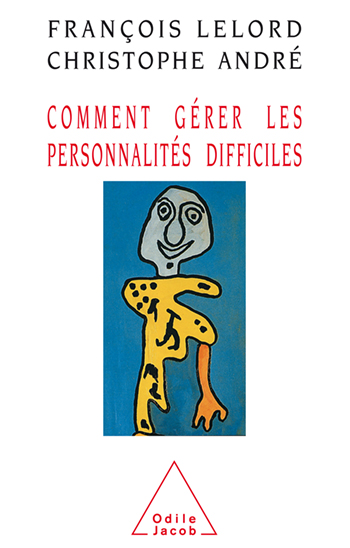
François Lelord, Christophe André
How to Manage Difficult People
In this book, François Lelord and Christophe André provide advice drawn from their own vast experience, on how to better understand and manage these difficult personalities.

